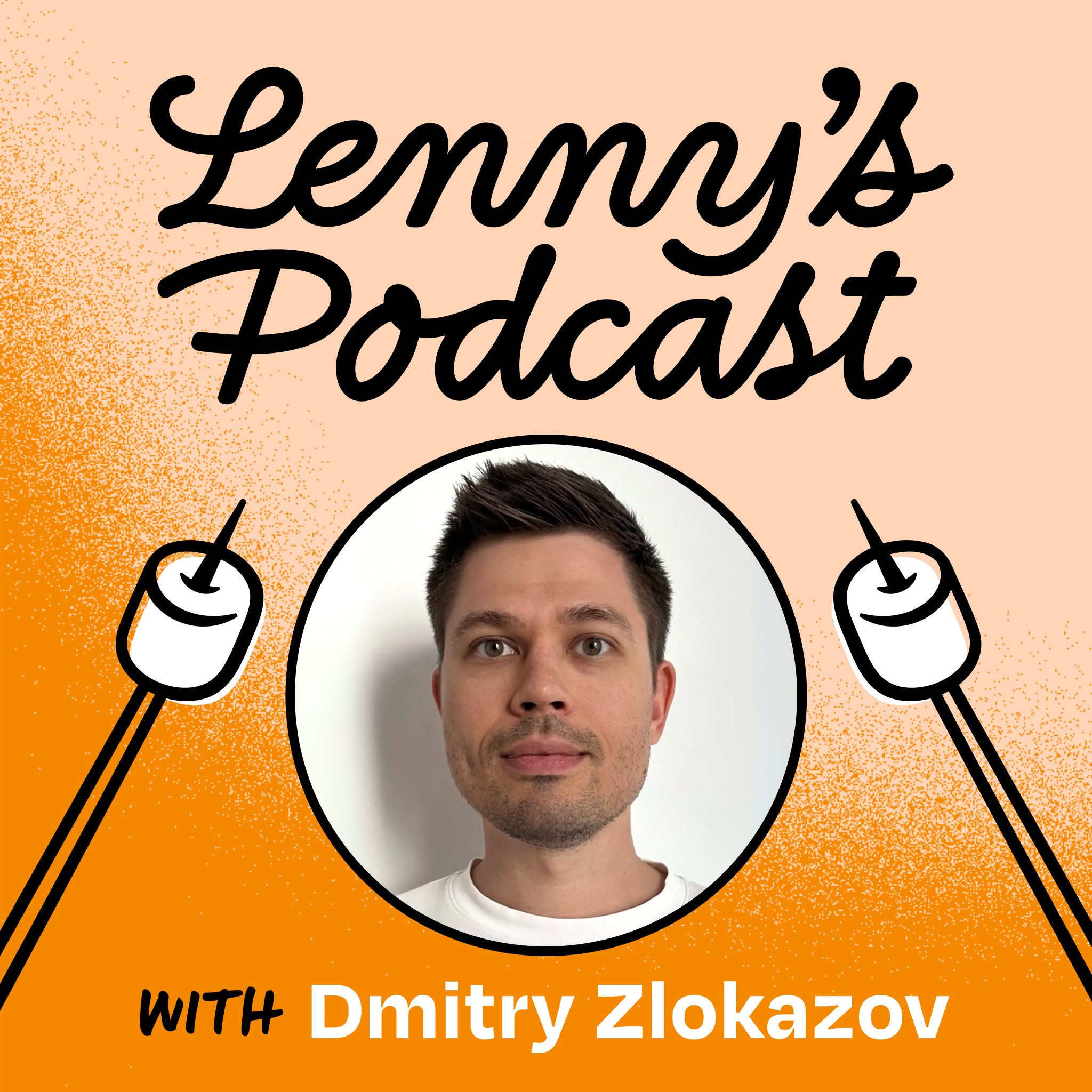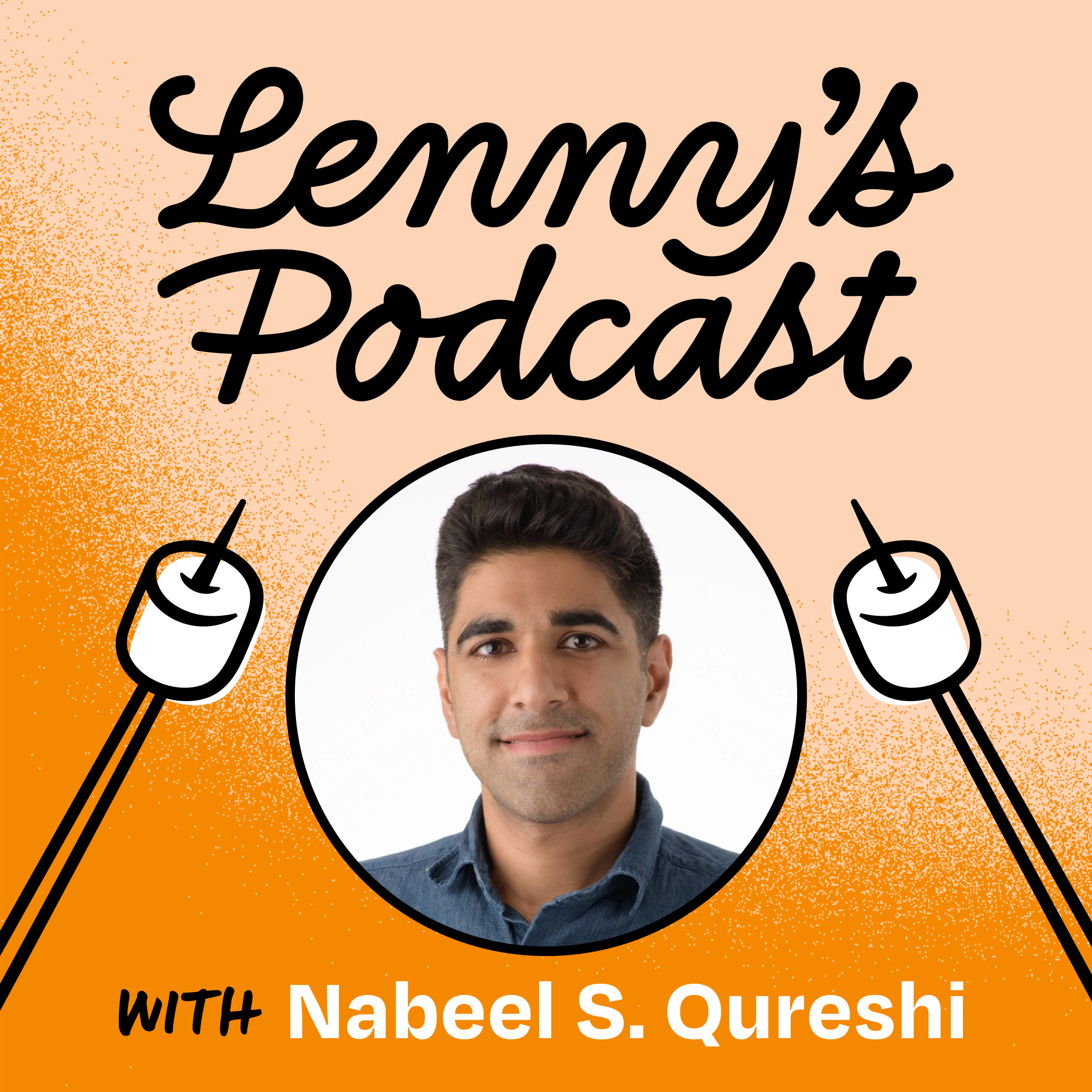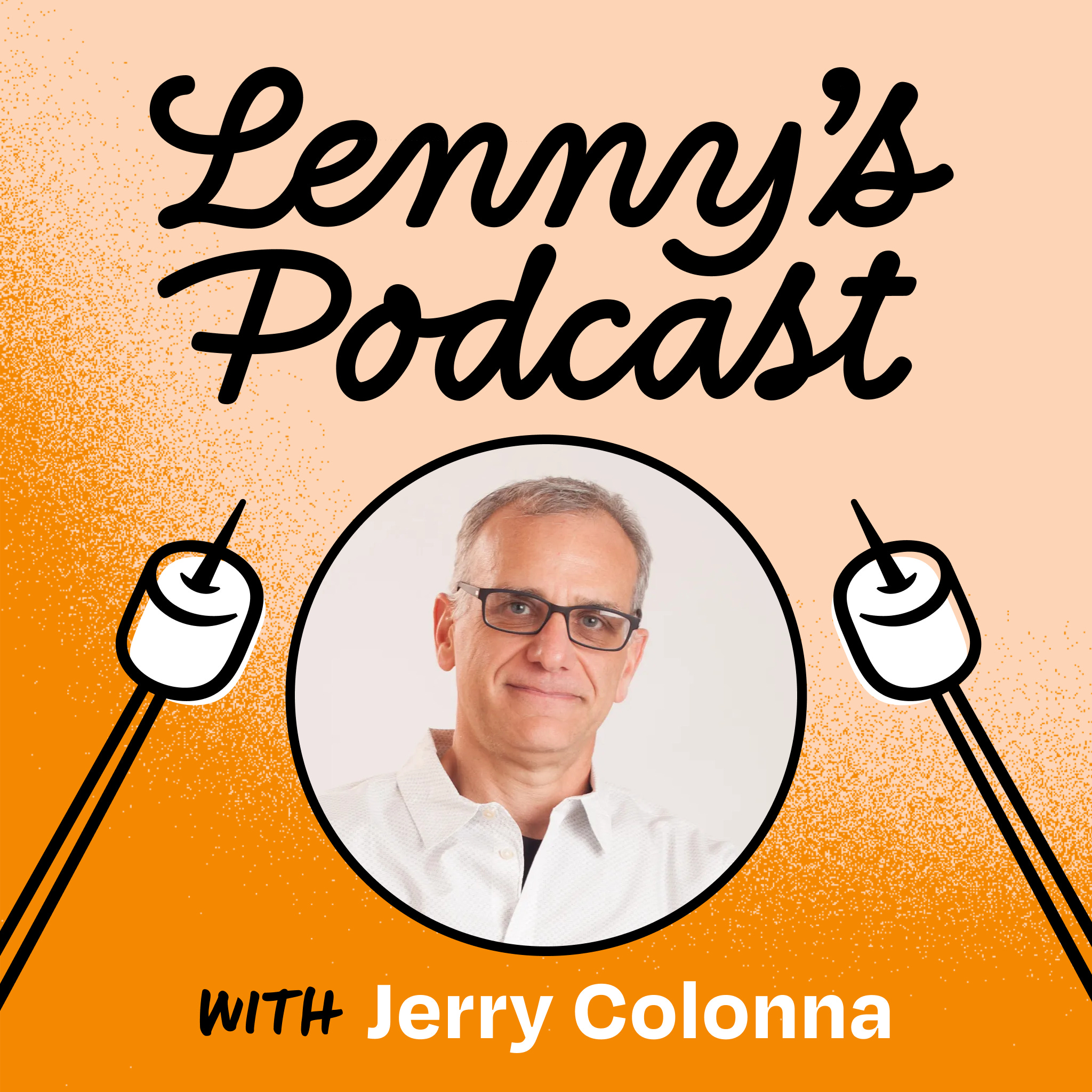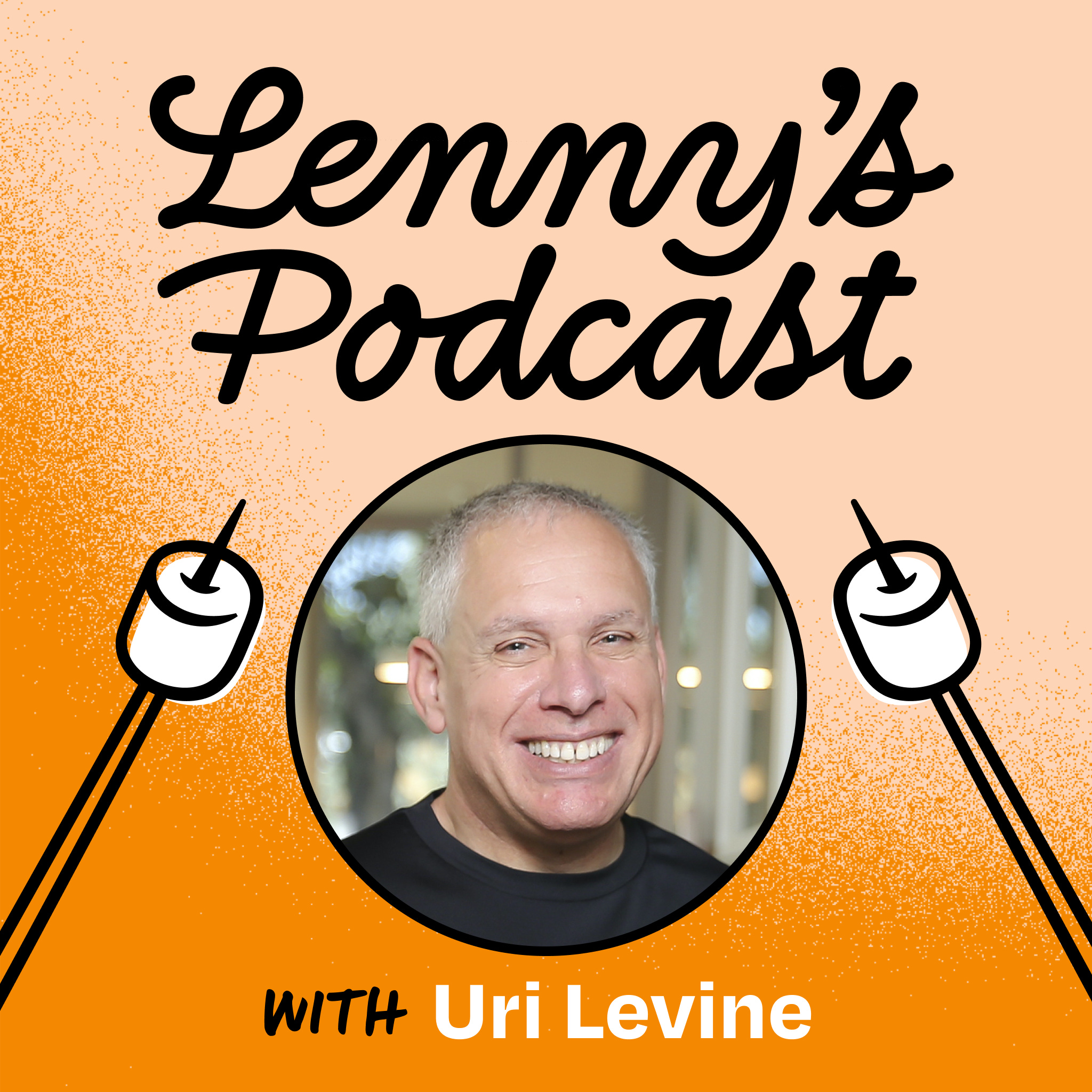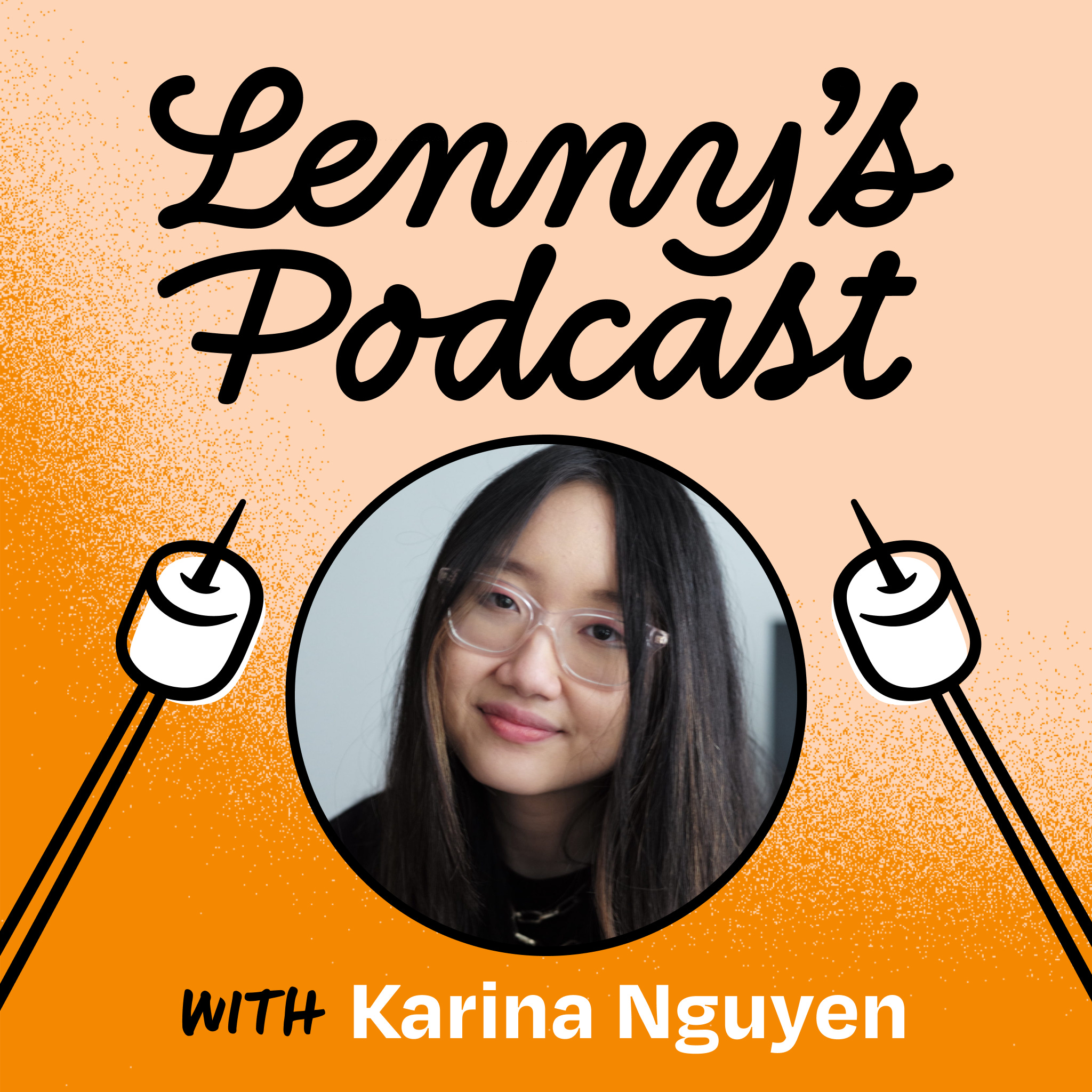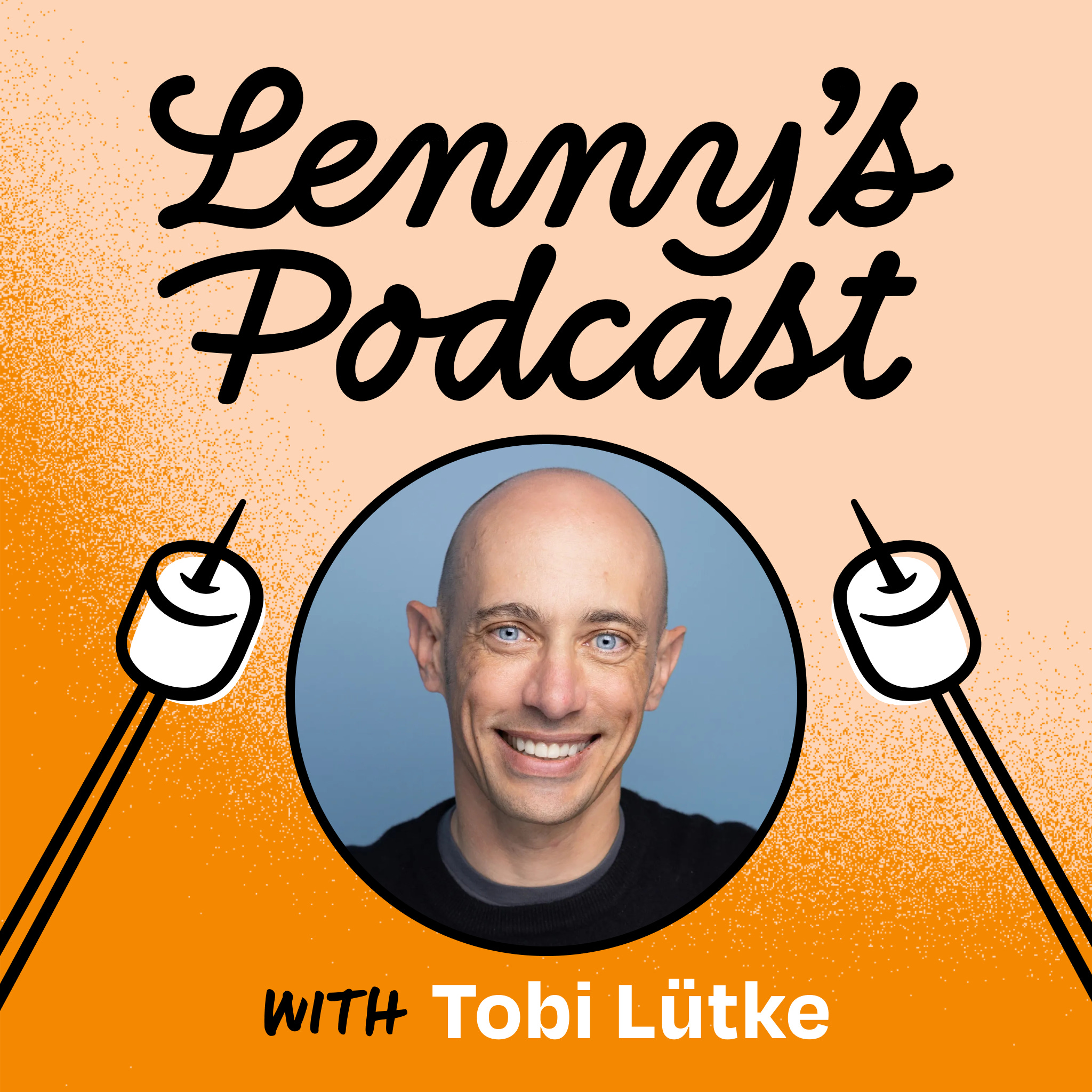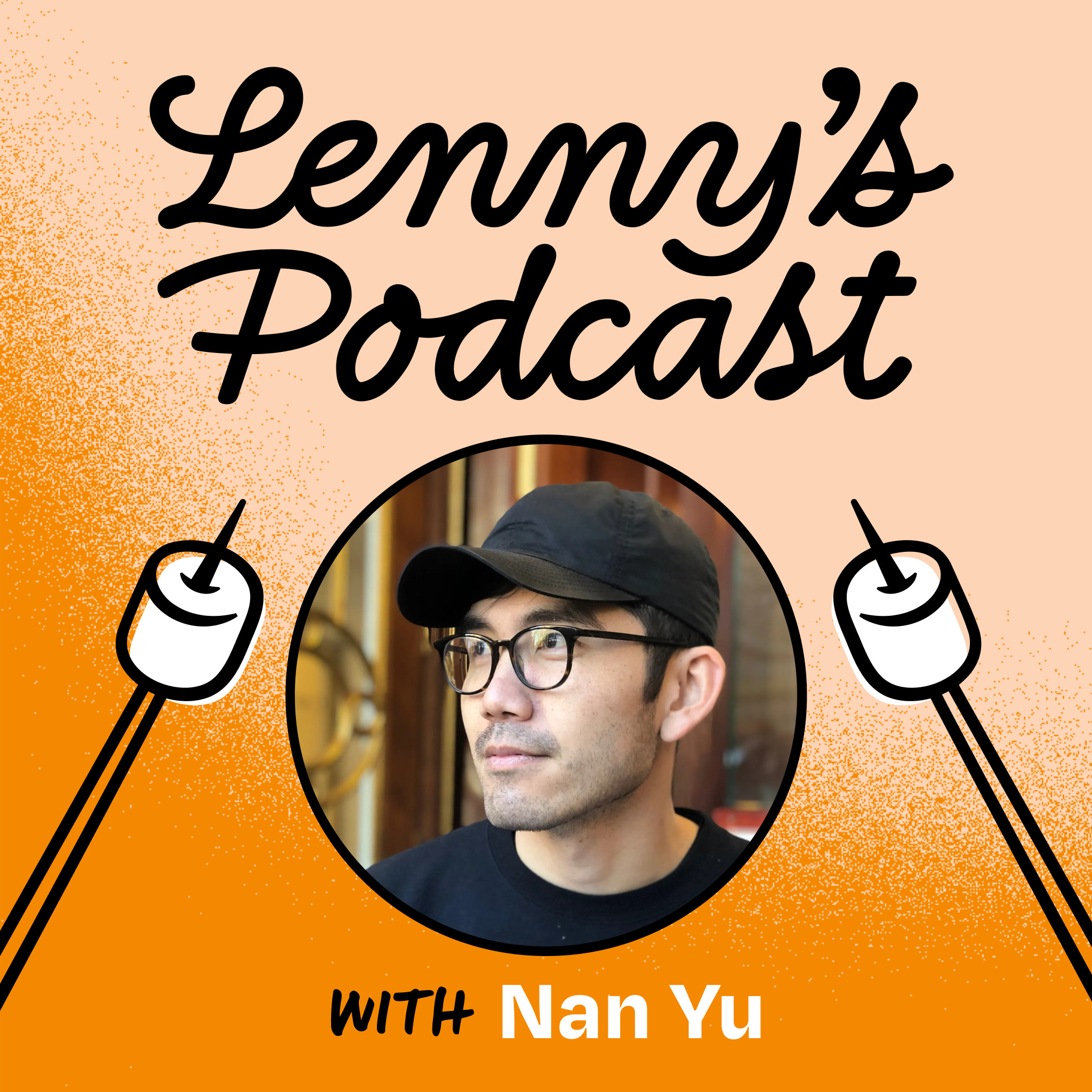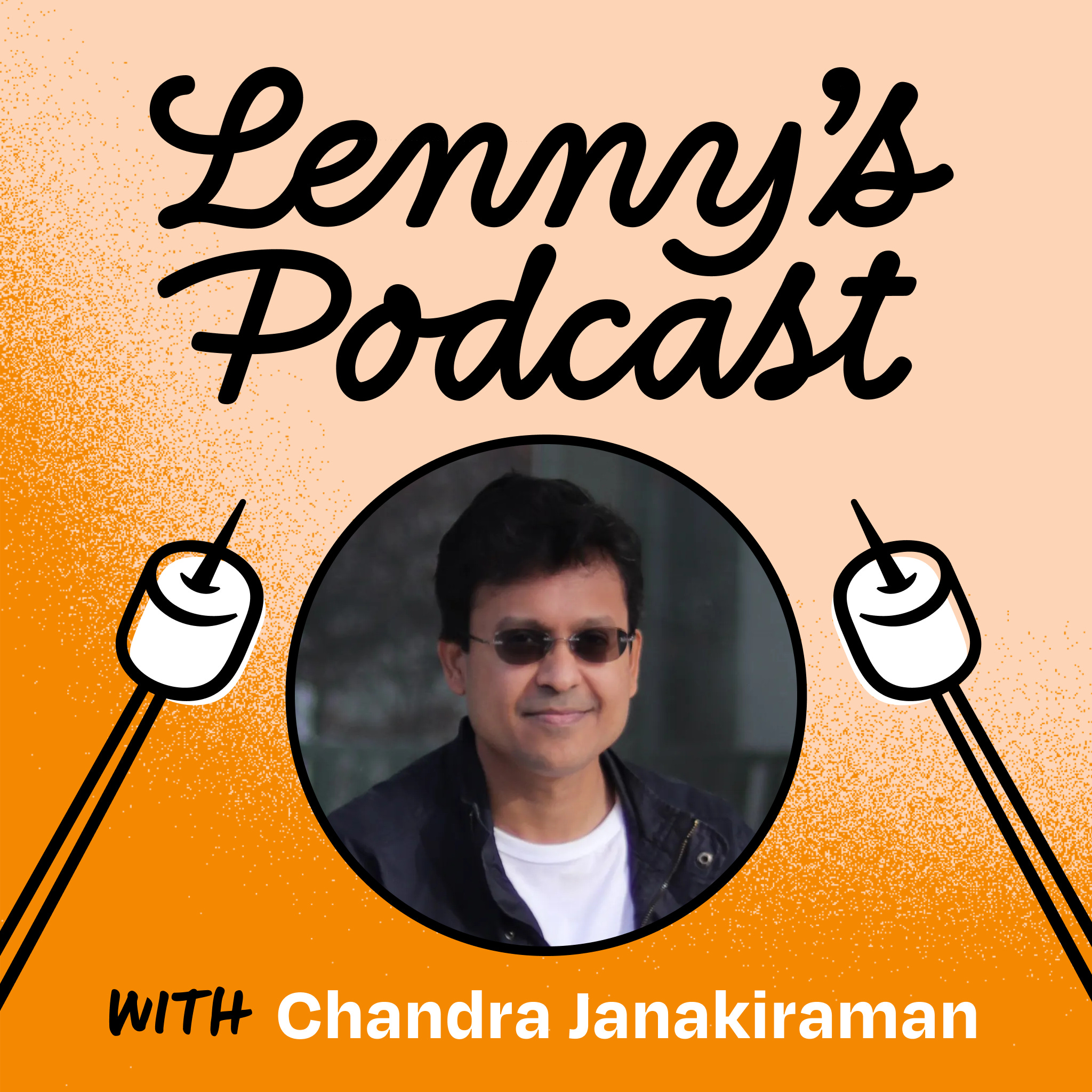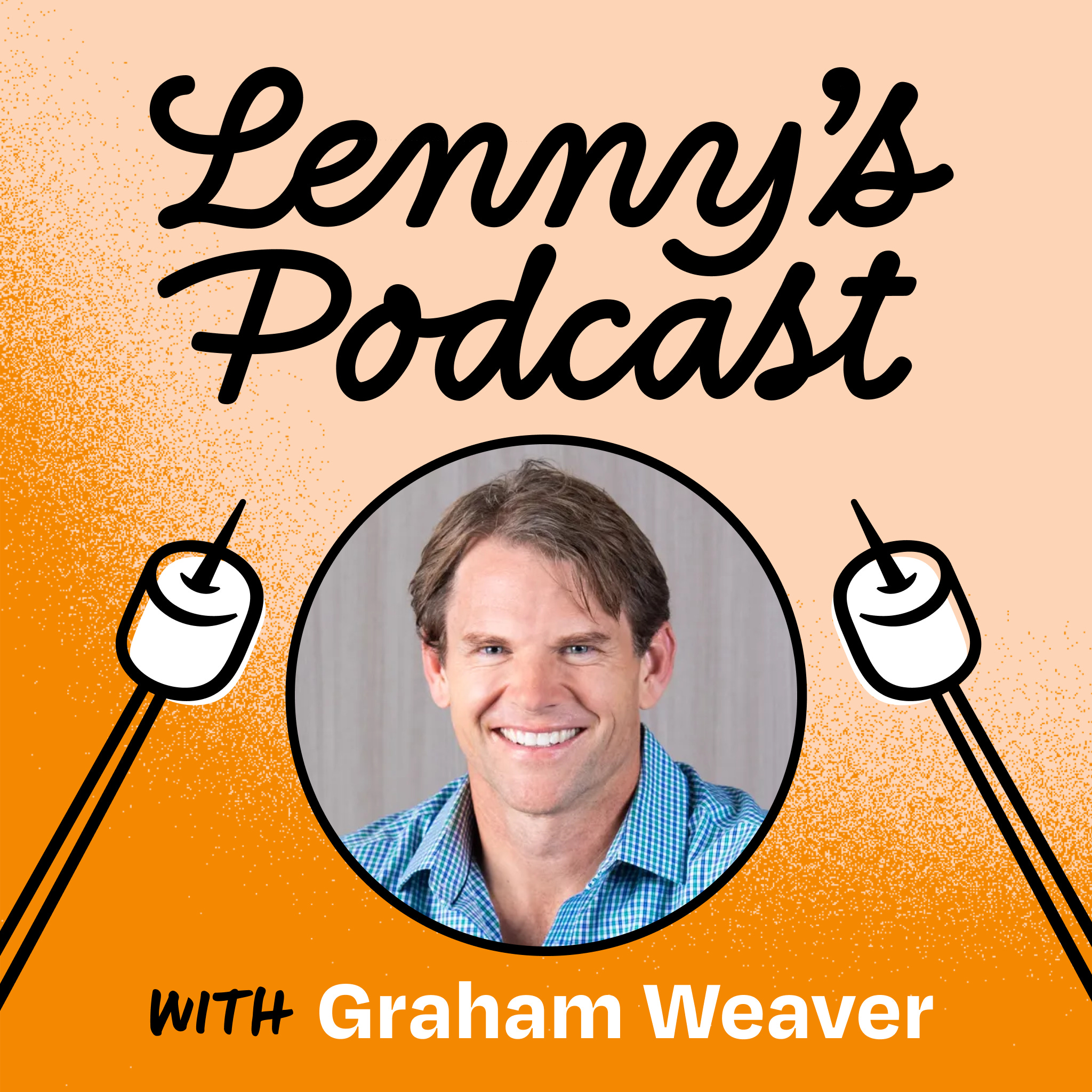
October 3, 2024 • 1hr 24min
Thinking like a gardener not a builder, organizing teams like slime mold, the adjacent possible, and other unconventional product advice | Alex Komoroske (Stripe, Google)
Lenny's Podcast: Product | Growth | Career
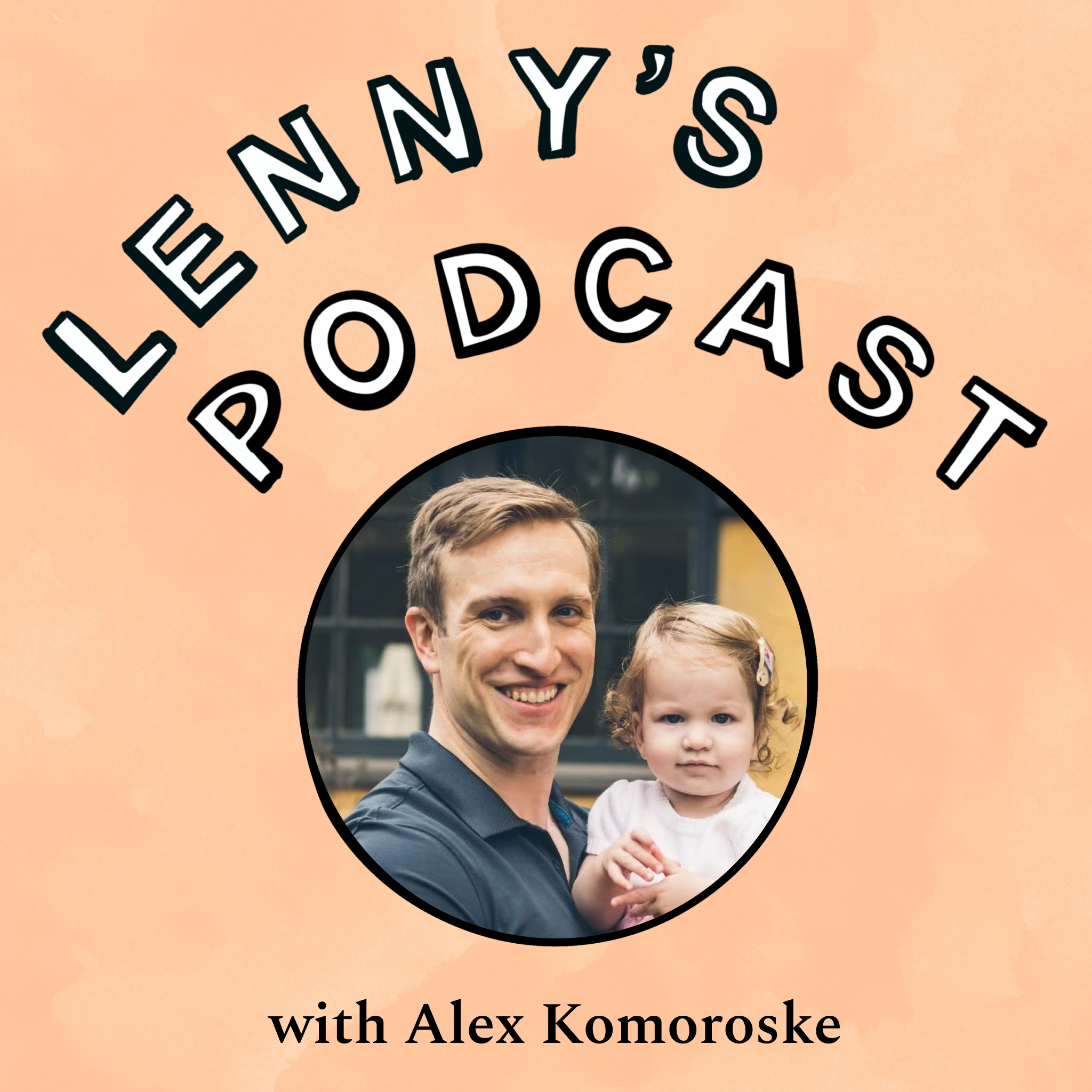
Key Takeaways
- AI and LLMs are disruptive technologies that will significantly change how products are built in the coming years. They provide "magical duct tape" that allows for cheaper software development but with higher inference costs.
- Product managers should focus on curiosity and play when it comes to AI, experimenting with new possibilities rather than relying on existing playbooks.
- AI tools like ChatGPT make individuals better in ways that may not be visible to organizations, acting as an "electric bicycle for ideas".
- "Organizational kayfabe" refers to the tendency in large organizations for people to pretend things are better than they really are, which can lead to poor decision making.
- A "gardening" approach to product development focused on planting seeds and nurturing growth can be more effective than a top-down "building" approach in many cases.
- The "adjacent possible" concept encourages focusing on small, achievable next steps aligned with a longer-term vision rather than trying to make huge leaps.
- Creating "strategy salons" or "nerd clubs" within organizations can be a powerful way to generate insights and align on strategy in an emergent way.
- Productivity can be enhanced through techniques like time constraints, "always rules" for habits, and structuring your day around energy levels.
- A key life philosophy is to "do things that give you energy that you are proud of".
Introduction
In this episode of Lenny's Podcast, host Lenny Rachitsky interviews Alex Komoroske, a strategic leader with extensive experience at companies like Google and Stripe. Alex is known for his unique perspectives on organizational dynamics, product development, and the future of technology. The conversation covers a wide range of topics, from the impact of AI on product development to strategies for fostering innovation within large organizations.
Topics Discussed
AI and LLMs in Product Development (10:10)
Alex discusses how AI and large language models (LLMs) are likely to change product development in the coming years:
- LLMs are a truly disruptive technology that undermines existing assumptions about software development costs.
- They allow for cheaper creation of "good enough" software but with higher inference costs.
- This changes the basis of competition and requires new approaches to product design.
"LLMs to me feel like that. I can't tell you the number of people who are at some point like a year or two someone came to me, they like, I just built a prototype product that would have taken me three months and can we found a startup, I was like, how differentiate do you think that is? Everybody can do that now."
Skills for Product Managers in the AI Era (14:24)
Alex advises product managers to focus on:
- Curiosity and play - experimenting with new AI possibilities
- Developing good taste - having a distinctive perspective that resonates with others
- Leaning into individual strengths and unique perspectives
"I think taste is the most important thing. You have a perspective that is different from the background noise, different from the average, and that people find compelling."
AI's Impact on Individual Productivity (19:02)
Alex explains how AI tools like ChatGPT are enhancing individual productivity:
- They act as an "electric bicycle for ideas", allowing people to cover more ground quickly
- AI assistants can serve as conversation partners for brainstorming and problem-solving
- The impact is often below the organizational radar, happening in the "long tail" of usage
Organizational Kayfabe (23:04)
Alex introduces the concept of "organizational kayfabe":
- A tendency in large organizations for people to pretend things are better than they really are
- This can lead to compounding distortions of reality as information moves up the hierarchy
- While some level of optimism is valuable, extreme kayfabe can lead to poor decision-making
"The dangerous part about this is it can lead you to make very bad decisions. And if you as someone who sees this can see that. Wait a second, the official strategy is definitely not going to work."
Gardening vs Building Approach (31:48)
Alex contrasts two approaches to product development and strategy:
- Building: Top-down planning and execution
- Gardening: Planting seeds, nurturing growth, and working with emergent properties
He advocates for more "gardening" approaches, especially in uncertain environments:
- Focus on cheap, low-risk experiments that could have outsized returns
- Look for ideas with compounding potential
- Be willing to let go of ideas that aren't working
"If you do this properly, it looks like magic, it look like a thing. It looks like getting lucky, because what you're doing is you're farming for miracles."
Emergence-Oriented Thinking (34:46)
Alex discusses the power of emergence in organizations:
- Create conditions for bottom-up innovation rather than relying solely on top-down control
- Allow 70% of effort for clear, agreed-upon value creation, and 30% for experimental "seed planting"
- This approach can lead to unexpected breakthroughs and higher impact
Slime Molds and Organizational Structure (41:55)
Alex uses the metaphor of slime molds to describe organizational dynamics:
- As organizations grow, coordination costs increase dramatically
- Large organizations need to balance centralized control with distributed autonomy
- Understanding these dynamics can help leaders navigate growth more effectively
Strategy Salons and Nerd Clubs (48:02)
Alex shares his approach to fostering innovation through "strategy salons" or "nerd clubs":
- Create low-stakes environments for exploring ideas
- Set explicit norms for collaborative debate and building on ideas
- Gradually introduce diverse perspectives to the group
- Allow insights to emerge organically rather than forcing specific outcomes
"This is like an ideal lab. What? Tim Ember McQuaugh Ideal Lab and this creates amazingly interesting insights. You just can't force it to do anything. It has to be a bottom up and emergent, which means if you try to steer it towards an outcome, it won't go."
Productivity Hacks and Self-Control (55:59)
Alex shares several productivity insights:
- Use time constraints to your advantage - give yourself less time for tasks
- Create "always rules" rather than "sometimes rules" for better self-control
- Build streaks and momentum with daily habits
- Structure your day around when you have the most energy
Life Philosophy and Personal Insights (1:01:04)
Alex discusses his life philosophy and approach to personal growth:
- "Do things that give you energy that you are proud of"
- Recognize that many profound insights are things you've heard before but weren't ready to truly understand
- Cultivate a sense of awe and openness to disconfirming evidence
The Adjacent Possible (1:07:52)
Alex explains the concept of the "adjacent possible" in strategy and product development:
- Focus on small, achievable next steps rather than trying to make huge leaps
- Combine a clear long-term vision (North Star) with flexible short-term actions
- Recognize that you can't predict everything - avoid false precision in planning
"If you slice this thing up and you have a coherent worldview and you have a principled approach, you can arc to wildly different outcomes that look like they were possible, while at each point each individual action is safe and reasonable."
Conclusion
This wide-ranging conversation with Alex Komoroske offers a wealth of insights for product managers, founders, and anyone interested in organizational dynamics and innovation. Alex's unique perspectives challenge conventional wisdom and provide fresh approaches to product development, strategy, and personal growth in the age of AI. By embracing concepts like emergent thinking, the adjacent possible, and the power of "gardening" approaches, leaders can foster more innovative and adaptable organizations. The discussion also highlights the importance of individual curiosity, experimentation, and reflection in navigating the rapidly changing technological landscape.
